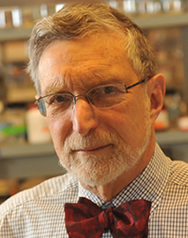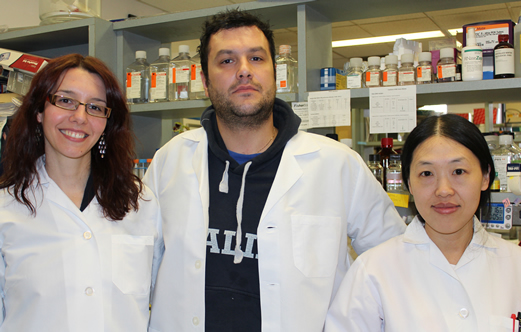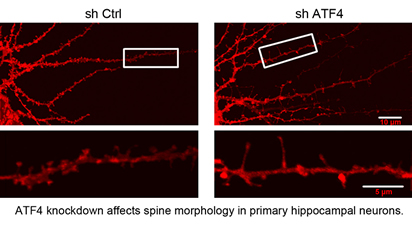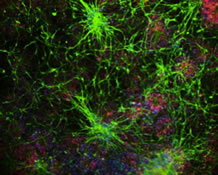Columbia University
Irving Medical Center
Neurological Institute
710 West 168th Street, 3rd floor
(212) 305-1818
Featured Research
IN THE LAB:
Michael Shelanski, MD, PhD
 Michael Shelanski, MD, PhD
Michael Shelanski, MD, PhD
Our laboratory is investigating the mechanism of memory disruption and synaptic dysfunction in Alzheimer's Disease. We use a combination of cell culture and transgenic animal approaches in an attempt to understand why the overexpression of the amyloid precursor protein (APP) or direct application of its active peptide, A-beta, inhibits intracellular signaling in neuronal cells and leads to alterations of electrical activity, dendritic spine morphology, and behavior. These results are extended with analyses of neurons taken from post-mortem Alzheimer's Disease (AD) brains. In the past, our attention has been on the PKA-CREB signaling pathway and on the role of ubiquitin c-terminal hydrolase-L1 (Uch-L1) in regulating these events. Current research is tightly focused on the roles of caspase-2 and activating transcription factor 4 (ATF4) in the control of dendritic spine morphology. A second project involves the use of a systems biology approach to analyze gene expression data from human AD brains in such a way as to identify novel targets for the treatment of AD. The laboratory approaches these questions with a wide range of tools including biochemistry, cell biology, physiology, and microscopy.

Members of the Shelanski Laboratory include, from left to right, Silvia Pasini, PhD; Carlo Corona, PhD, Jin Liu, PhD; and Soline Aubry, PhD (not pictured).
One innovative project, led by Soline Aubry, stands at the interface between computer science and molecular biology. In order to gain new insights into the molecular processes involved in Alzheimer's disease progression, Soline uses a systems biology approach to reverse engineer the transcriptional regulation layer of neuronal cells and interrogate them to infer candidate Master Regulators responsible for disease progression. Soline's work is done in collaboration with the Andrea Califano laboratory.
Carlo Corona is currently investigating the role of ATF4 in hippocampal synaptic plasticity. Carlo employs a wide range of electrophysiological techniques, such as field recordings for studying the Long-Term Potentiation and Long-Term Depression in the hippocampus, and whole-cell patch clamp for assessing the activity of single neurons.

Jin Liu is investigating the functions of ATF4 in neuronal system. Her work is focused on the mechanism of how this transcription factor modulates synapse formation and spine morphology, which play an important role in learning and memory. Jin currently aims to identify the ATF4 downstream pathway that affects spine formation.
Silvia Pasini is also studying the role of ATF4 in the context of learning and memory. Silvia is manipulating ATF4 expression in the adult mouse hippocampus using a lentivirus-mediated gene transfer technique. Further, she is assessing the cognitive function of the mice using a battery of behavioral tasks.

